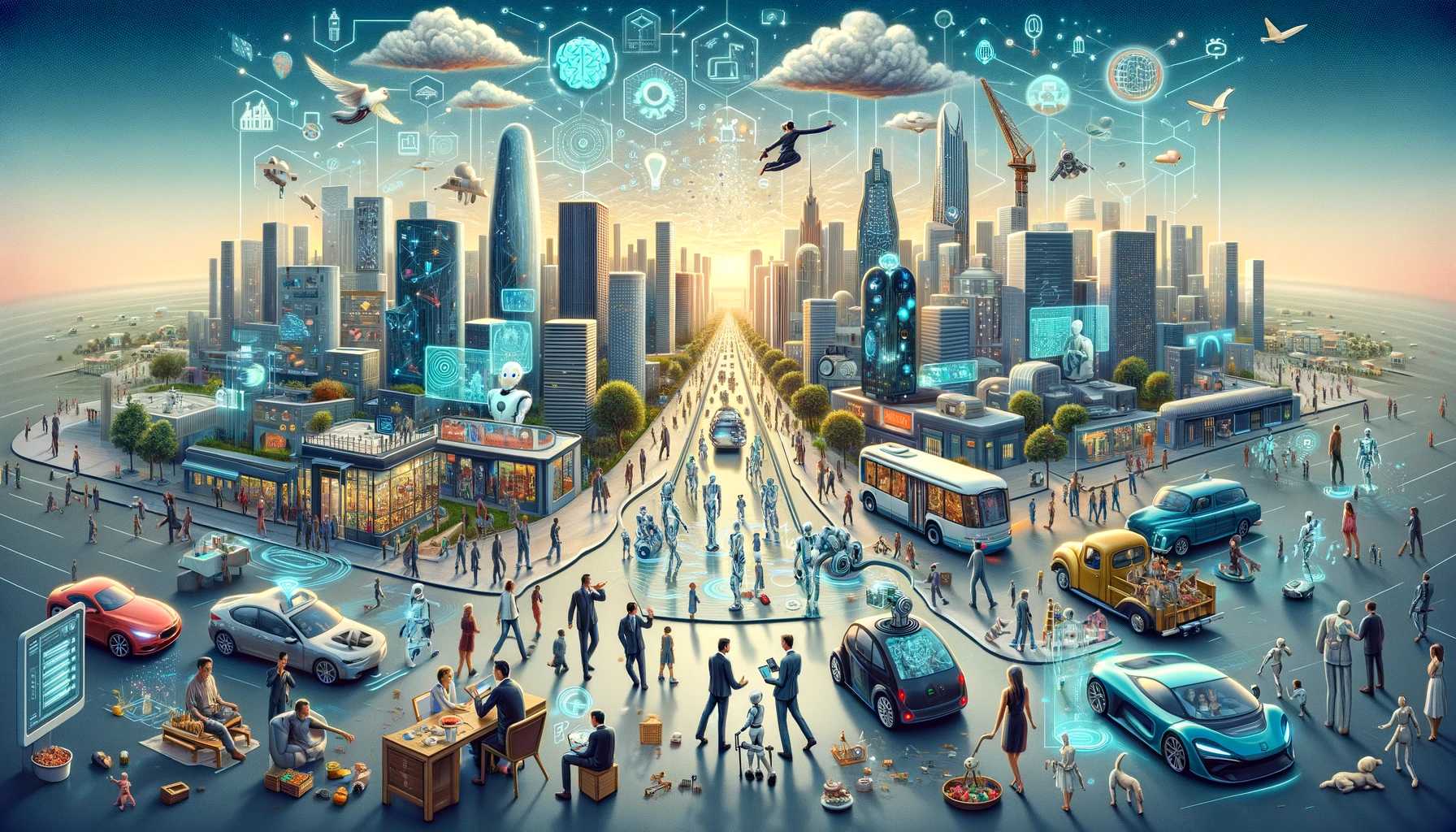The Impact of Artificial Intelligence (AI) on the Society
Technology has been advancing rapidly over the last few decades, and it has had a major impact on our lives. AI has the potential to bring about the numerous changes in the society. As with most changes in life there will be positive and negative impacts on the society as Artificial Intelligence continue to impact lives round the world.
Brief History of Artificial Intelligence
The concept of AI was first introduced in 1950s, but it wasn’t until the 1960s and 1970s, that the field really began to take off. The development of expert systems neural networks, and other AI techniques in the 80s and 90s laid the groundwork for AI we see today. It’s amazing how far technology has gone and the progress has been accelerating rapidly.
Key moments in the history of AI
- The Dartmouth Conference in 1956. This was a meeting of scientist and mathematicians who gathered to discuss the potential of artificial intelligence. This meeting is often considered the beginning of AI as a field of study.
- The development of ELIZA, one of the first chatbots, in the mid-1060s. ELIZA was a computer program that could simulate conversation with a human.
- AI made its way into popular culture with movies like Blade Runner and 2001: A Space Odyssey. In the 1990s, AI saw major developments with the rise of the internet and the developments laid the groundwork for the AI boom we’re seeing today.
HOW AI HAS EVOLVED
Well, they have been a lot of debate over the years about the impact of AI on the society and the economy. Some people worry that AI will lead to job loss and a decline in human interaction. While others argue that AI will create new jobs and opportunities, and that will enhance human productivity and creativity.
There’s no doubt that AI has impacted some industries, such as manufacturing, finance, and transportation. But it’s also true that AI has created new industries, and jobs, like data science and machine learning engineering. The transformative impact of artificial intelligence on our society will have far-reaching economic, legal, political, and regulatory implications that humans really need to talk about. Determining who to blame when an autonomous vehicle hits a pedestrian or how to manage and autonomous car race.
Positive Impacts of Artificial Intelligence
Artificial intelligence has dramatically improve the effectiveness and efficiencies of our workplaces and can augment the work humans can do. AI has taken over, repetitive and dangerous tasks. It frees up the human’s workforce to do work they are better equipped for, and tasks that involve creativity and empathy among others. If people are doing work that is more engaging for them, it could increase happiness and job satisfaction.
AI has improved medical diagnosis and treatment, increased agricultural productivities, and made transportation safer. Including ways to uncover criminal activities and solve crimes has been enhanced with artificial intelligence. Facial recognition technology is becoming just as common as fingerprints, must top organization has made it part of them.
People argue that AI is leading to increased surveillance and loss of privacy. They also worry about bias and discrimination in AI system, regardless to this facts, unless one choose to live remotely and never plan to associate and involve with the modern world, which is kind of impossible. AI has significantly impacted lives, learning experience and challenges faced by human.
Negative impact of Artificial Intelligent
The ability to create a machine that can simulate human intelligence is no feat. It requires a lot of time and money, including the resources to have one. AI needs to operate on hardware and software to stay updated to enable it meet their latest required updates.
A big disadvantage of AI is that it cannot learn to think outside the box. AI is capable of learning over time with per-fed data and past information’s, but cannot be creative without on its own.
Ethic and morality are important human features that can be very difficult to incorporate into an AI. Early child hood we have been taught that neither computers nor machines have feelings.
Types of Artificial Intelligence
There are three main types of AI: Narrow AI, General AI and Super AI
Narrow Artificial Intelligence: is designed for a specific task, this AI focuses on one task and cannot perform beyond its limitation, like, playing chess or driving a car.
General Artificial Intelligence: Is capable of performing any intellectual task that a human can, like, making research.
Super Artificial Intelligence: This AI is more intelligent than a human in every way and can perform, function, and uphold any task more than human.
We are still a long way from general AI to Super AI, but narrow AI is already having a big impact on our lives.
Different approaches to AI
It might interest you to know that there are different approaches to creating AI systems. Theses includes, machine learning, deep learning, and symbolic learning.
Machine learning: Uses algorithms to find patterns in data. An algorithm is like a container, and it provides a box for storing methods to solve a particular kind of problem.
Deep learning: Deep learning is a subset of machine learning that uses neural networks to process data.
Symbolic Artificial Intelligence: Is based on the idea of representing knowledge as a set of symbols and rules. The symbolists, one of the early tribes, thought that knowledge could be acquired by working with symbols, which are signs that represent certain meanings or events, and drawing conclusions about the rules that may be found there.
The symbolists shaped their algorithms to produce rules from data because they could logically deduce the desired result by assembling intricate rules systems. In symbolic logic, induction raises the degree of human knowledge, while deduction broadens its application. Deduction investigates those areas, whereas induction typically opens up new ones.









